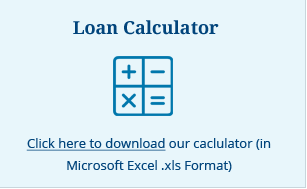If you’re planning on buying your first home or investment property, a recession may tempt you to fast-track your search so you can snap up a great deal. However, it’s important to understand that recessions can affect real estate prices in unpredictable ways. Buying a home any time—especially during a recession—is a complicated process that requires careful thought and planning. Presented by Commercial Brokers Australia, here are some essential tips to keep in mind to ensure your first home-buying experience is a positive one!
Can You Afford to Buy a Home?
Financial planning is an essential ingredient in the home-buying process, especially when a recession threatens your job stability. Ensure you have the financial means to make your down payment and continue paying your mortgage even if you face a period of unemployment in the future. This is a good time to build up your emergency fund! Based on your savings, household income, and monthly expenses, use an online calculator to find out how much house you can afford. Make sure you also take some time to research your local real estate market to determine how COVID-19 and the recession have impacted demand in your area.
Navigating the Financial Steps
If there is a high demand for homes in your area, you might be competing with several other buyers for desirable properties. The best way to get ahead of your competition is to get your financial prerequisites in order now! Unless you can pay cash for your new home, you will need to get a loan, so try to get pre-approved for a mortgage before searching for properties.
One of the benefits of getting pre-approved for a mortgage is that you have time to shop around for a loan with a low interest rate. Many first-time home buyers choose to apply for FHA loans due to their relaxed credit requirements. With an FHA loan, you may be able to purchase a home with as little as 3.5 percent down, but you will have to budget for mortgage insurance.
Understanding Different Types of Home Sales
Foreclosures and short sales are common during recessions. These homes often sell for below market value, so they can be tempting—especially for the first-time buyer! However, it’s important to be wary of these types of home sales because they can come with a variety of problems. For example, short sale homes can take a long time to close because they involve multiple moneylenders. Foreclosed homes often sell as-is, so make sure you know what this means. Homes sold “as-is” could come with major defects including structural issues, mold, mildew, termite infestations, or a leaky roof.
Remember to Do Your Due Diligence
Before closing on your new home, check for problems that could cause financial headaches in the future. Sellers facing financial stress may be in a hurry to sell their homes without making essential repairs, so find out what kind of maintenance is needed before committing to your purchase. In addition to getting your property surveyed to learn where your property begins and ends, hire a good home inspector to come and take a look. It’s also important to conduct a title search on any home you’re looking to purchase. During a recession, it’s more likely that sellers have unpaid liens on their homes. A title search will also help you discover old mortgages or improper property transfers that could cause you problems down the line.
Buying your first home is an exciting experience. While the recession may throw a wrench in things, as long as you have a stable job and the money for a down payment, you can still go through with your plans to buy a home! Make sure you understand the ins and outs of home buying during a recession so you’re properly prepared to handle every step of the process.






